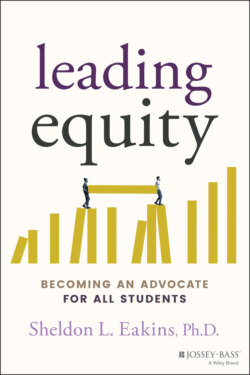Читать книгу Leading Equity - Sheldon L. Eakins - Страница 26
Recognizing Your Privilege
ОглавлениеLet's move on to privilege. Like biases, we all have some form of privilege. There are so many kinds of privilege connected to an individual, even though sometimes, we just assume that “white privilege” is the only privilege out there. For example, I am a male, so I have male privilege. I am also Christian, which results in me having Christian privilege. I'm able-bodied, and I'm heterosexual, both privileges that equate to benefits that I have in society, which I didn't necessarily earn or ask to have.
However, these privileges benefit me nonetheless, and I must reflect upon this fact and acknowledge that some people don't have the same privileges that I enjoy. Our realities will be different because of that. Therefore, we must keep in mind that there are things that we experience that maybe our colleagues and students don't share or things we must think about that maybe our colleagues and students don't have to consider.
Now, when we're thinking about conversations about race and ways to facilitate them, we must put our biases aside and acknowledge that we are coming from our own place of privilege. We must reflect on that before we have these conversations with our students because when we try to navigate discussions through our own experiences without considering the experiences of others, the talks won't be nearly as impactful.
The bottom line is that we all must acknowledge that we have those biases. We must acknowledge that we have privileges. Then, we can use those as stepping-stones to further discussions about race and ethnicity with our students.
